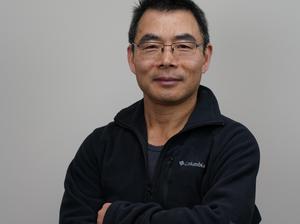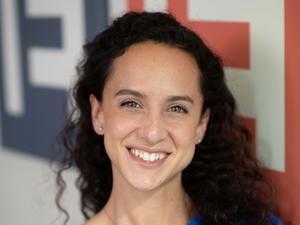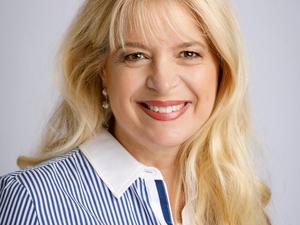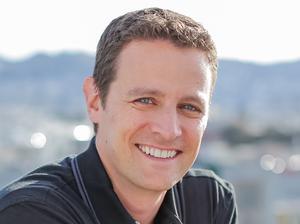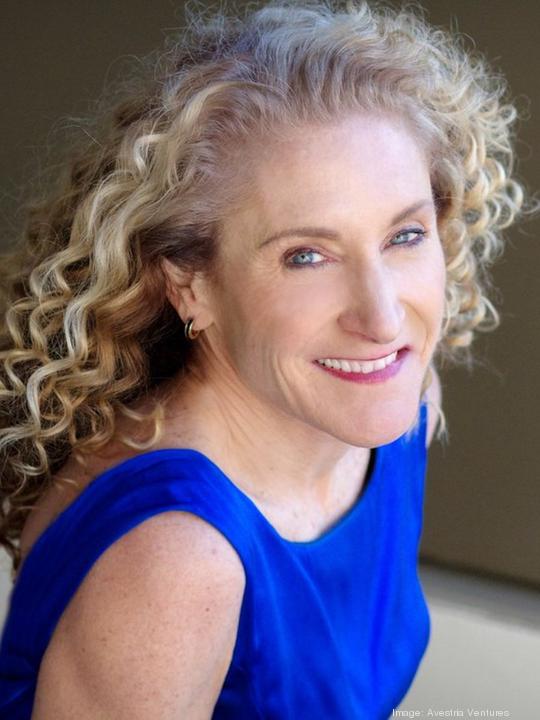
Linda Greub sees opportunities where other investors don't, but women's health shouldn't be considered niche.
In fact, the women's health market is expected to surpass $1 trillion by 2027. It's not surprising, though, that the male-dominated investment and venture capital industries overlook women's issues.
So Greub, 62, founded Avestria Ventures in 2019 to drive investments to female founders and startups focused on addressing women's health. The San Francisco venture firm raised $10 million for its first fund and has invested in 17 companies, two of which have already had exits. And it's currently raising its second fund, according to an SEC filing.
Greub is a fifth-generation Bay Area local who grew up in Lafayette and studied art history at Yale and business at Harvard. Before switching to venture capital, she was a senior healthcare service analyst at Montgomery Securities before it eventually merged with BoA Securities. She left investment banking for business development at Applied Biosystems "to better understand what I had been analyzing," Greub told me. By 2010, so had been recruited to work at Novartis and a year later she combined forces with some business school friends to try their hands at venture capital with their own money. Now she's been at it full-time since 2019.
I spoke with Greub about disparities in healthcare and science, what's trending in the industry and why the private markets should keep an eye on institutional endowments.
Why are you so focused on women's health specifically?
I just view that as an amazing opportunity that so many venture capitalists are missing. I used to try to come up with some rational reason as to why that occurred. And I've now decided it's just an opportunity. I'm only smart to pursue that. We all invest where our passions are, where our networks are. I think it continues to be a misperception in the investment community that investing in women's health is a niche business. And I think some people think that women's health is really just about labor and delivery when, in fact, over the past 10 to 15 years we have slowly come to the realization in both science and medicine that women and men are biologically different on the cellular level.
It was only in 2016, that the NIH started requiring the companies that they funded for scientific research to include female cell lines in animal models, and it's only really this year that the FDA is demanding that clinical trial data includes a strong representation of women, as well as men. We're gradually moving towards ethnic diversity in our clinical trials, too. We have really been used to assuming medicine is a one-size-fits-all endeavor.
The "average white man" has been the benchmark for everybody for way too long.
There are so many things in medicine where women are sort of an afterthought. Like most things in our society, it takes women having a seat at the table before these things will change. And again, that's not just for women, it has to do with people from all different types of backgrounds. It's a great example of when there's too much homogeneity and you miss some amazing opportunities that are often just there in plain sight.
Do you find that you're more in the position of having to turn founders away?
Absolutely. In fund one, we invested in 17 companies and there are so many more we would have liked to invest in. We're resource constrained not just in terms of dollars but also in terms of our bandwidth, being a small group. But there are so many opportunities out there that really could be great. They need more than just capital. They need people with experience to help the growth of business sometimes. Or they need broader networks, to leverage some of the resources that exist. But these are amazing people who have great backgrounds and great ideas, and nothing's perfect from day one, right? Every company and every business has its ups and downs. But there is no reason that these can't be superstar companies.
There are so many less than qualified founders who get lots of capital just because of they have the right network, they look the right way, they sound the right way.
That does not happen in this space. It's very difficult for female founders, and it's certainly not easy for anyone working in women's health. Our founders are generally not 22-year-olds who've dropped out of college. These are people with Ph.Ds, they're medical doctors, they've worked in healthcare often for decades and often at the large leading companies in healthcare, and they're now taking those skills and taking it in a different direction, working in an environment where they have more flexibility to move faster, to innovate. They are infinitely qualified. They're also unlikely to be unicorns because the unicorns that have often existed in healthcare have sometimes run into fraud. You don't disrupt healthcare the same way you might disrupt a new phone. It's a great field for grownups.
Conversations about the economy and venture capital sometimes feel kind of like 'the sky is falling' but there's still a large bucket of money for some people. Are you concerned?
We are in no way worried about our companies. Because it's like a party was going on last year, and we weren't really a part of it. Our companies are slow and steady for the most part. And you can't just throw a lot of money at science or medicine and expect it to move faster. It moves at the pace that it's supposed to move. So our entrepreneurs tend to be very capital efficient. They tend to have very clear business plans. It doesn't mean everything is always perfect sailing, but they know that from the beginning and we know that. We just support them through those twists and turns.
What are the biggest trends you're seeing in women's health?
We break healthcare into six sub sectors: services, digital health, therapeutics, diagnostics, devices and life science tools. We actually don't invest in direct to consumer, and that's just because it's not our background. In Fund One, the last three investments were all healthcare services/digital health. And right now, we're seeing some more in the device area.
What do you think is going to be the most challenging part of raising funding from limited partners right now?
If you're a smaller fund, you need less dollars from those institutional investors or the family offices or high net worth individuals in order to make a real impact. We could really grow a fair amount with relatively few dollars. One of the things that's happening right now, I think many people may have been reading their alumni news a year ago and seeing what incredible returns their endowments had from their models. And a lot of that had to do with exposure to the private markets and with what I'll call paper returns. And a lot of what was going on in the venture capital community was certain companies were raising money at ever higher valuations.
So those portfolios looked like they were increasing in value, and they are on paper, but that doesn't necessarily mean there was liquidity. And the problem with that is, if you're an endowment, you'll have a certain percentage of your assets that are supposed to be allocated to private markets versus doing public equity versus fixed income. And what happened is that the percentage of assets you have allocated to private investments went way up just because of valuation increases. And now what we've got is your allocation that is invested in the public markets is now going way down. So now for the institutions, many of them have what now looks like a huge over investment in private markets. I think that they're going to be rebalancing their portfolios. And I don't think it's necessarily going to favor the private markets in the near term.
There could be lots of M&A action this year. Do you think that benefits your portfolio companies, which tend to aim more for strategic acquisitions than IPOs?
Last year there was so much noise in the market, and so many companies had just completely unrealistic expectations. A lot of young companies were hiring investment bankers, which gets difficult for strategics because they're trying to have a one-on-one conversation with an entrepreneur and an investment banker is putting themselves in the middle of it. Things are settling down in a really wonderful way. It means that the craziness tends to be gone and these companies can mature at the right pace. Nobody's pushing them to hurry up and go public. And the strategic buyers aren't having to deal with saying to entrepreneurs, 'you're crazy." So it's actually a really good time in the markets for us.
The Deets
Age: 62
Residence: Lafayette, which is also the town I grew up in and the town my father grew up in. My son went to the same high school where my father and mother met, and it was the same high school I went to.
Hobbies: Being a mother but also trail running with my dog and friends. Also baking. I started a cheesecake company and that's much harder than investing.
What are you reading? "Vagina Obscura" by Rachel Gross.
What are you watching? The Staircase on HBO Max starring Colin Firth and Toni Collette.
Where did you go to school and what did you study? History of Art at Yale, and Harvard Business School with a focus on finance.
What was your first investment? Genentech while working as an investment manager.
What are you most proud of? My kids, two boys who are 19 and 22.
